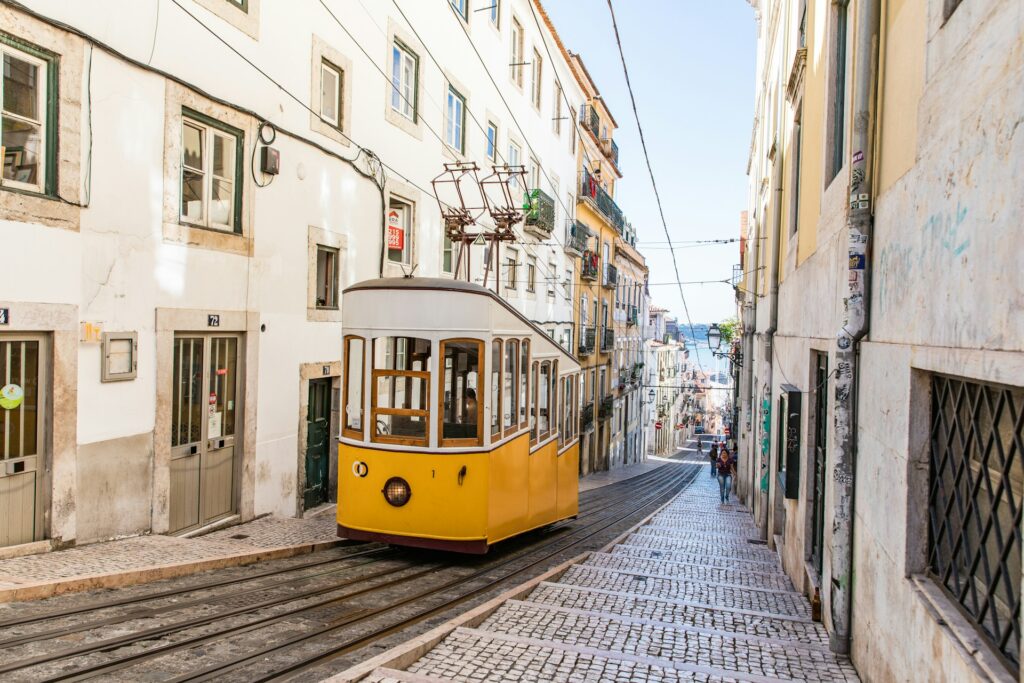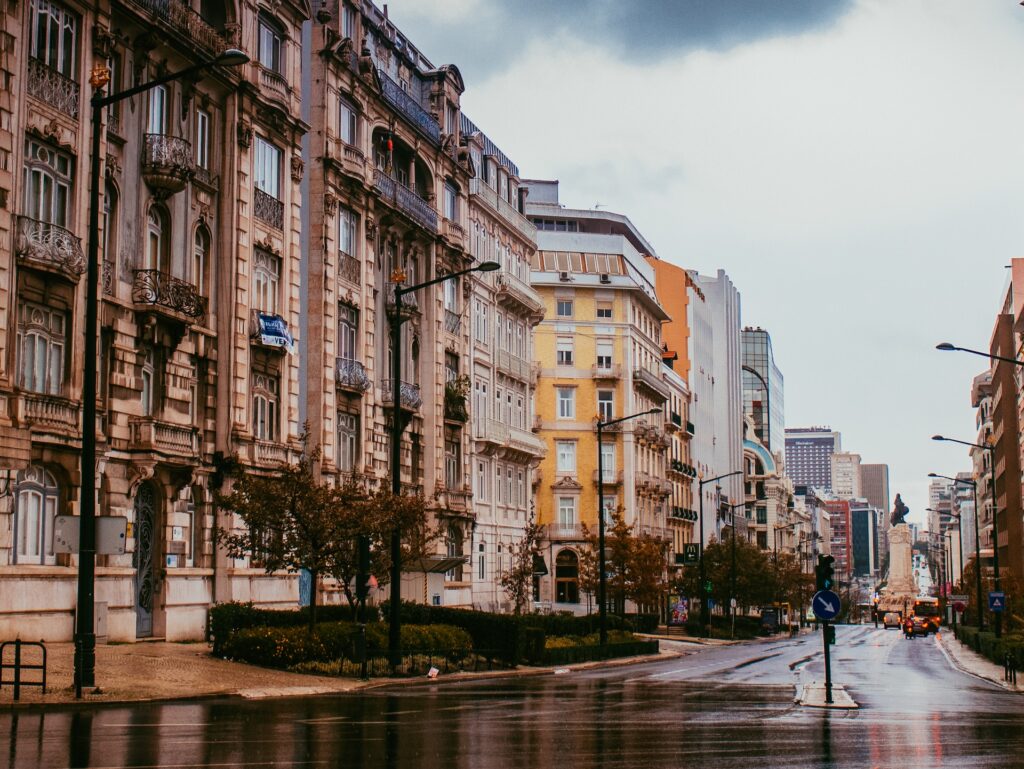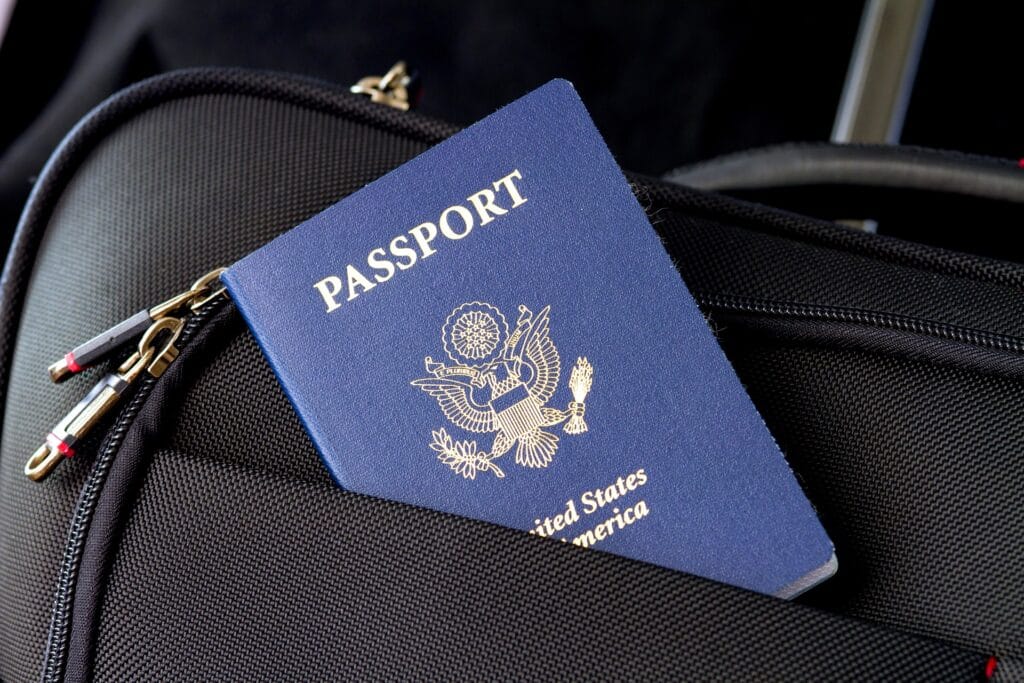Lisbon is a popular European city known for its friendly atmosphere and moderate climate. Its beautiful streets, historical architecture, and coastal location attract many residents and visitors each year. Lisbon offers an enjoyable quality of life with a mix of urban and traditional Portuguese experiences.
People often choose Lisbon for its comfortable pace and affordable living costs compared to other European cities. The city is safe, vibrant, and welcoming, making it ideal for families, professionals, and retirees alike. But how much does it really cost to live in Lisbon? In this detailed guide, we’ll help you understand the true cost of living in Lisbon.
We’ll cover housing expenses to show you the differences in rental prices between central and suburban neighborhoods. You’ll also find out about buying property, and what rent you should expect to pay. Finally, we will share the cost that goes into monthly grocery bills, transportation, and utility expenses such as electricity, water, and internet.
By the end of this guide, you will have a clear idea of the cost of living in Lisbon and whether Lisbon fits your budget and lifestyle. This will help you decide if this sunny Portuguese capital is the right choice for you.

Housing Costs in Lisbon
Rent Prices in Lisbon City Centre vs. Outside City Centre Areas
Renting a home is one of the biggest monthly expenses when living in Lisbon. If you prefer staying in central neighborhoods like Chiado, Bairro Alto, or Baixa, be prepared to pay higher rents. A one-bedroom apartment in Lisbon city centre costs around €1,402.26 per month.
These areas attract young professionals, expats, and students. This is due to close proximity to nightlife, cafes, and easy access to public transportation. A three-bedroom apartment is recommended for families that costs a rent of €2,603.42 per month.
Moving just a little further out of the city centre, the rent prices drop significantly. You can rent a similar one-bedroom apartment for around €1,075.98 per month. Suburban Lisbon provides quieter streets, more spacious apartments, and usually has parks and family-friendly amenities nearby.
With efficient public transit connecting suburbs to the city center, commuting is affordable and saves the cost of living in Lisbon. Families can afford a three-bedroom apartment for €1,767.51 making these areas popular with families and those seeking calmer surroundings.
Buying Property in Lisbon
Buying your own property in Lisbon is appealing for both living and investment purposes. Over recent years, Lisbon has become a desirable city for property buyers with steady price growth. Central Lisbon areas in the city centre have higher prices, averaging around €6,425.07 per square meter.
Apartments here tend to be smaller but provide the convenience and lifestyle that come with central city living.
Outside the busy city centre, property prices drop notably. Buyers can expect prices around €3,761.11 per square meter in these neighborhoods. Here, homes are usually more spacious, sometimes with outdoor spaces or terraces.
These suburban properties appeal to families, retirees, or remote workers who prefer peaceful surroundings with affordable cost of living in Lisbon.

Detailed Monthly Expenses in Lisbon
Restaurants and Dining Out
Understanding the cost of living in Lisbon starts with food expenses. Eating at restaurants in Lisbon is common and affordable, fitting various budgets and preferences. A simple meal at an inexpensive restaurant usually costs around €13, making casual dining easy to manage regularly.
Mid-range restaurants offer a pleasant dining experience for two people, averaging about €55 for a full meal. This is ideal for those wanting occasional outings without overspending.
Fast food chains like McDonald’s are also popular in Lisbon. A typical McMeal costs about €9, providing an affordable and quick meal option.
Lisbon’s vibrant café culture means coffee and pastries are affordable too, with drinks such as local and imported beers typically priced around €3. Enjoying Lisbon’s restaurants doesn’t need a high budget, as quality food is available at reasonable prices throughout the city.
Groceries and Markets
Groceries in Lisbon remain budget-friendly, supporting affordable cost of living in Lisbon. Essential items like milk cost roughly €0.96 per liter, while bread is about €1.51 for 500 grams. These basic items help keep monthly grocery expenses low for singles and families alike. Fresh produce such as fruits, vegetables, and eggs are also reasonably priced, making healthy eating accessible.
Shopping at local markets instead of supermarkets can further reduce your grocery bill. Lisbon’s local markets are popular for their fresh and often cheaper produce. These markets provide not just savings but also fresher items. By combining shopping at local markets with occasional supermarket visits, residents can significantly control their monthly grocery costs.
Below table illustrates the price for grocery shopping.

Transportation in Portugal
Transportation in Lisbon is convenient, extensive, and budget-friendly. The city’s public transportation system includes buses, trams, metros, and trains.
A monthly public transportation pass costs approximately €40, offering unlimited travel within the city. This makes commuting highly economical and stress-free.
Taxis and ride-sharing services like Uber and Bolt are easily available in Lisbon, with fares starting around €3.73. They offer flexible travel options, particularly useful at night or for short journeys.
If you prefer owning a car, expect additional expenses such as gasoline, roughly €1.78 per liter. Considering these costs, many residents choose public transportation for daily commuting with one-way tickets starting from €2 only.
Utilities
Utilities such as electricity, heating, cooling, and water typically cost around €127.07 per month for an average-sized apartment (85 square meter) in Lisbon. This estimate covers the essentials comfortably, providing stable and reliable services.
For those mindful of their consumption, utility costs can be managed even more effectively through energy-saving habits.
Internet service in Lisbon is reliable, widely available, and affordable, typically priced around €36.13 per month. Most providers offer fast broadband connections of 60Mbps or more for remote work, streaming, and gaming.
Mobile phone monthly charges are €18.39 with calls and 10GB+ data. With these reasonable cost of living in Lisbon, residents can comfortably include utility expenses within their budgets.

Healthcare Expenses in Lisbon
Lisbon offers both public and private healthcare options, each suited to different needs and budgets. Public healthcare in Lisbon is part of Portugal’s national healthcare system and provides affordable medical care.
Residents who register with the national system have access to free or low-cost doctor appointments, hospital visits, and basic treatments. Public hospitals in Lisbon are reliable and staffed by experienced professionals making the cost of living in Lisbon affordable.
However, waiting times for non-urgent medical treatments or specialist appointments can sometimes be lengthy due to high demand.
Private healthcare in Lisbon is quicker and provides more personalized service. Private hospitals and clinics typically have shorter waiting periods, more comfortable facilities, and doctors who speak English, which is beneficial for expats or newcomers.
However, these benefits come at higher costs. A single visit to a private doctor usually costs around €25 to €40, significantly higher compared to public clinics.
Typical Medical Insurance Costs
To manage healthcare expenses, many residents in Lisbon purchase medical insurance. Basic insurance plans are available at around €20 to €30 per month, covering routine doctor visits and some specialist care.
Comprehensive private health insurance, covering specialist treatments, hospital stays, and emergency services costs between €40 and €70 per month. Depending on the individual’s age and health status, the cost of living in Lisbon may vary.
Families or older adults usually opt for more extensive coverage plans. Choosing a suitable insurance plan helps keep healthcare costs manageable while ensuring access to quality medical care without financial stress.

Entertainment and Leisure Expenses in Lisbon
Costs for Gyms, Cinemas, and Events
Staying active and entertained in Lisbon is affordable and accessible. Gym memberships vary based on facilities and location. Budget-friendly gyms like VivaGym offer memberships starting at €30 to €40 per month.
Mid-range options like Holmes Place provide more amenities, with monthly fees ranging from €50 to €90. For luxury experiences, establishments like the Four Seasons Hotel Ritz Lisbon offer premium memberships with added perks.
Cinemas in Lisbon cater to diverse preferences with cost of living in Lisbon on the average side. A standard movie ticket averages €6.50. Discounts are available at venues like UCI Cinemas, where tickets can be up to 20% off.
Special events, such as the IndieLisboa film festival, offer screenings for €5.00, with reduced rates for students and seniors.
Lisbon’s event scene is vibrant. Major music festivals like NOS Alive have ticket prices starting at €61. Other events, such as the Sónar Lisboa festival, offer day passes from €45. These events showcase both international and local talent, providing entertainment options for various budgets.
Affordable Leisure Activities in Lisbon
Lisbon offers numerous budget-friendly leisure activities within the normal range of cost of living in Lisbon. Exploring historic sites like the Jerónimos Monastery and Belém Tower is free or has minimal entrance fees. Public parks, such as Parque Eduardo VII, provide green spaces for relaxation and picnics.
For cultural experiences, consider visiting the Gulbenkian Museum, which houses a vast art collection. Entry fees are modest, and discounts are available for students and seniors.
Additionally, the city’s iconic Tram 28 offers a scenic and affordable tour through various neighborhoods.
Clothing and Footwear Costs in Lisbon
Shopping for clothes and shoes in Lisbon is moderately priced, especially if you prefer branded or mid-range products. A standard pair of jeans like Levi’s 501 costs around €89.25. For women, a summer dress from chain stores such as Zara or H&M is typically priced at €34.33.
If you’re into sports or fitness, a mid-range pair of Nike running shoes will set you back approximately €78.31. For formal wear, men’s leather business shoes cost about €104.41 on average.
While not the cheapest in Europe, these prices reflect good quality and access to international brands. Locals often wait for seasonal sales or shop at outlet stores to find better deals to decrease the cost of living in Lisbon.

Education and Childcare Costs in Lisbon
In Lisbon, public education is free and compulsory for children aged 6 to 18. Public schools follow the national curriculum and teach in Portuguese. While they are cost-effective, they may have limited resources and larger class sizes.
Private schools in Lisbon offer more personalized education, often with smaller class sizes and additional extracurricular activities. Tuition fees for private schools are €530.29 per month excluding additional costs for enrollment, books, and meals.
International schools cater to expatriate families and offer curricula such as the International Baccalaureate (IB), British, or American programs. These schools provide instruction in English or other foreign languages and often have diverse student bodies.
Tuition fees for international schools in Lisbon is €14,322.73 annually. Therefore, cost of living in Lisbon increases for those having children going to school.
Summary of cost of living in lisbon
These figures are monthly averages and provide a general overview; actual expenses can vary based on personal lifestyle and choices.
Cost of Living in Lisbon for a Single Expat
Cost of Living in Lisbon for a Family of Four

How Lisbon Compares to Other European Cities
When compared to other major European capitals, cost of living in Lisbon remains affordable. Daily expenses, public transport, and groceries are generally cheaper than in cities like Paris, Amsterdam, or Berlin.
For example, eating out in Lisbon costs significantly less, with a typical meal at an inexpensive restaurant priced around €13, compared to €18 to €20 in Paris or Amsterdam. Public transport is also cheaper, with a monthly pass costing about €40, while cities like London charge well over €100.
Compared to other European cities like Paris, London, or Amsterdam, Lisbon remains considerably more affordable. Housing, transportation, groceries, and dining costs in Lisbon are lower, making it an attractive destination for expats and digital nomads seeking lower cost of living in Lisbon.
However, housing costs in Lisbon have risen sharply in recent years. While still cheaper than London or Munich, rent for central apartments in Lisbon is now higher than in some Eastern European cities such as Budapest or Prague. For those used to Western European prices, Lisbon offers a good balance of quality of life and lower living costs.
Cost Differences Within Portugal (Lisbon vs. Porto)
Within Portugal, Lisbon is the most expensive city, especially when it comes to rent and dining out. A one-bedroom apartment in Lisbon’s city center costs around 30% more than Porto.
The cost of living in Lisbon is generally more expensive than other Portuguese cities, such as Porto. Groceries and dining costs are also slightly elevated compared to Porto, reflecting Lisbon’s status as Portugal’s capital and largest city.
On the other hand, Porto offers a slower pace of life and is growing in popularity among expats and remote workers. While Lisbon is busier and more international, Porto gives you more space for your money, making it attractive for those on a tighter budget.
Tips to Save Money While Living in Lisbon
Cost of living in Lisbon can be affordable if you make smart choices. One of the best ways to save money is by using public transportation instead of owning a car.
A monthly pass for metro, buses, and trams costs around €40, and Lisbon’s public transit network is reliable and covers most areas.
Cooking at home instead of eating out daily can also cut the cost of living in Lisbon. Groceries from local markets are usually fresher and cheaper than supermarkets. Items like fruits, vegetables, and bread are best bought at small neighborhood stores or open-air markets where prices are more reasonable.
Choosing local brands for basic goods like milk, rice, and cleaning supplies can help lower your monthly grocery bill.
Taking advantage of free entertainment is another great tip. Many museums offer free entry on specific days, and Lisbon’s parks and beaches provide free spaces to relax and exercise.
Fitness lovers can jog along the Tagus River or use public workout stations in parks. Living in Lisbon doesn’t have to be costly with smart planning and local knowledge.

How to Relocate to Lisbon: Visa Options for a Fresh Start
If you’re thinking about relocating to Lisbon, Portugal, you’re not alone. The city has grown into a favorite spot for individuals and families seeking an affordable lifestyle, a pleasant climate, and access to European living. According to VisaGuide.World’s annual ranking, Lisbon has been named the top European capital to visit in 2024.
One of the main reasons people successfully move to Portugal is because the country provides flexible visa options for non-EU citizens. Two of the most popular options are the Portugal Golden Visa and the D7 Visa. Both open doors for long-term residence, and in time, even citizenship.
Portugal Golden Visa
The Portugal Golden Visa is ideal for those who can make an investment in exchange for residency rights. With a minimum investment of €250,000, the Portugal Golden Visa grants the right to live in the country and opens a legal pathway to apply for Portuguese citizenship after five years of residency through naturalization.
There are several eligible paths:
- Contributing at least €250,000 to cultural or heritage projects
- Investing €500,000 in scientific or technological research
- Putting €500,000 into an approved investment fund
- Starting a business that creates a minimum of 10 jobs
- Increasing a company’s capital by €500,000 while maintaining or generating jobs
This visa can lead to permanent residency and even Portuguese citizenship after five years, provided that legal requirements are met.
D7 Passive Income Visa
For those who aren’t looking to invest large amounts but can show regular income, the D7 Visa offers a much simpler route. It’s aimed at individuals who earn steady passive income like retirees, freelancers, remote workers, or people with rental or dividend income.
To qualify, you need to prove your income is at least €870 per month. This can include pensions, rental payments, royalties, or income from financial investments. Once approved, the D7 Visa allows you to live in Portugal with the right to renew and later apply for permanent residence or citizenship.
Whether you’re bringing business plans or enjoying retirement, Lisbon’s visa options offer multiple paths to settle down and enjoy an affordable cost of living in Lisbon.

Need Help with Your Portugal Visa?
Applying for a visa can be overwhelming, especially in a new country. That’s why we’ve partnered with Portugal Residency Advisors®, our trusted experts in immigration and relocation.
Whether you’re applying for the Golden Visa, D7, or another residency option, their team provides clear, step-by-step support—from documents to legal advice. They’ve helped clients from all over the world start new lives in Portugal.
If you’re planning to move in 2025, don’t leave it to chance. Visit Portugal Residency Advisors and schedule your free consultation today.
Looking to Invest in Portugal?
Explore our newest listings below!
Frequently Asked Questions About cost of living in Lisbon
Is Lisbon affordable to live in 2025?
Lisbon is affordable compared to other European capitals, but rising rents and daily expenses require a monthly budget of at least €1,500 for a modest lifestyle.
How much does renting an apartment in Lisbon cost?
Rent for a one-bedroom apartment in central Lisbon averages €1,400 monthly, while suburban areas offer similar spaces for about €1,000, depending on the location and amenities.
What are the average monthly utility bills in Lisbon?
Monthly utility bills, including electricity, water, and internet, usually cost between €100 and €150 for a small apartment, depending on usage and service providers.
Is public transport in Lisbon expensive?
No, Lisbon’s public transport is budget-friendly. A monthly metro, bus, and tram pass costs around €40, making it a practical choice for daily commuting and city travel.
How much should I budget for food and groceries?
A single person typically spends between €200 and €300 per month on groceries. Eating out occasionally increases the monthly food budget by another €100 to €150.
Are healthcare costs in Lisbon high?
Public healthcare is low-cost and reliable. Private insurance starts around €30 monthly, offering quicker access to services and wider provider options for those who prefer private care.
How does Lisbon’s cost of living compare to Porto?
Lisbon is generally 15–20% more expensive than Porto, especially for rent and dining. However, both cities remain more affordable than many Western European capitals.
